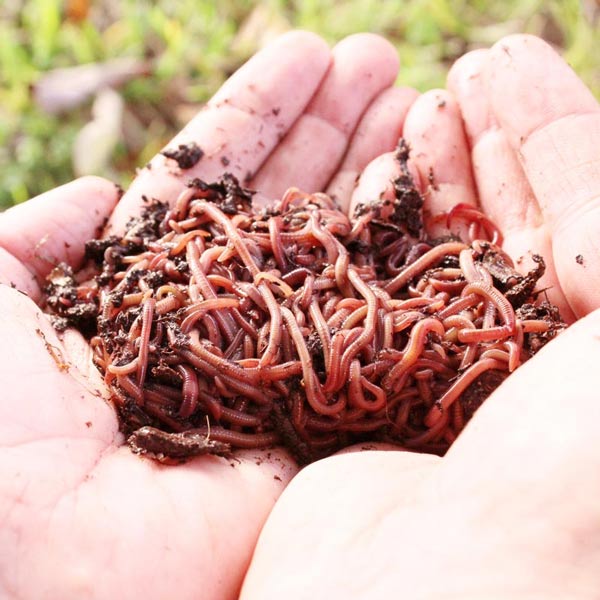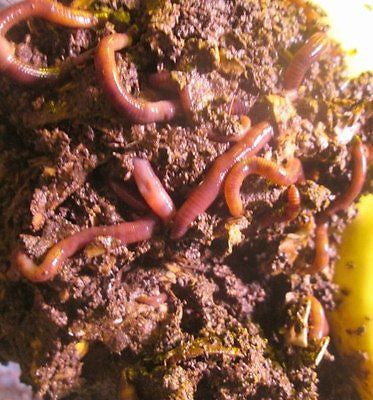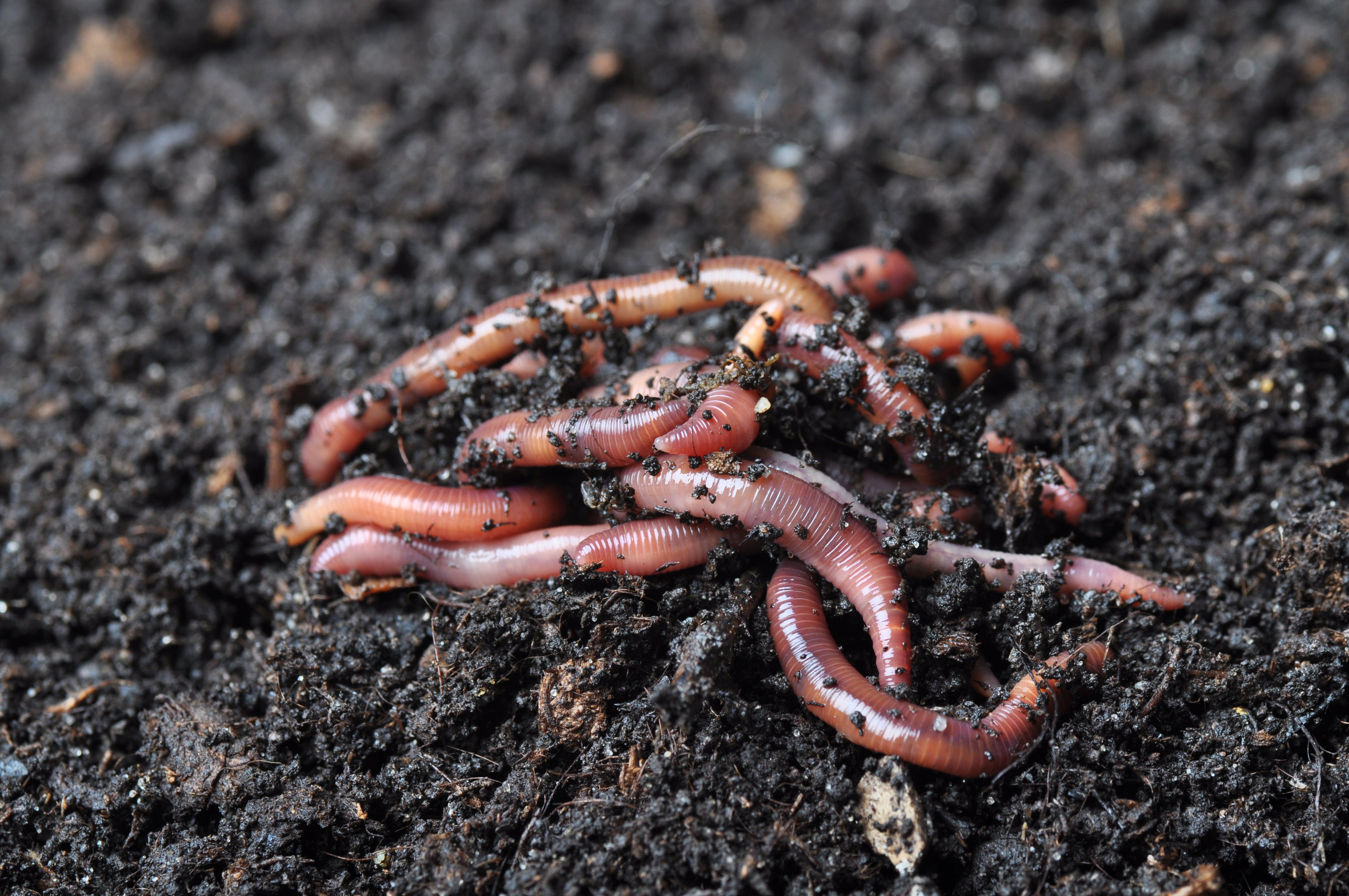Top red worms: Everything you need to know
Top red worms: Everything you need to know
Blog Article
Why Red Wigglers Are Crucial for Chemical-free Farming
Red wigglers play a crucial duty in chemical-free farming, mostly with their one-of-a-kind capacity to decompose natural materials and improve dirt health. Their task not only enhances the dirt with important nutrients yet also promotes a thriving ecosystem important for sustainable agriculture. Furthermore, the physical processes they take part in, such as aeration and wetness retention, add dramatically to boosted plant yields. The extent of their effect on agricultural techniques and dirt biology elevates fascinating concerns about the future of natural farming. red wigglers. What ramifications might this have for farming methodologies?
Function of Red Wigglers in Soil Wellness

Furthermore, red wigglers improve soil framework by developing channels as they tunnel. These channels boost oygenation and water infiltration, advertising a much healthier root environment. Their task likewise aids in keeping optimum wetness degrees, which is vital for healthy plant development.

Benefits of Worm Spreadings
Worm spreadings, the nutrient-rich waste matter generated by red wigglers, work as a powerful modification for chemical-free farming. These castings are loaded with important nutrients such as nitrogen, phosphorus, and potassium, which are vital for plant growth. Unlike synthetic fertilizers, worm spreadings launch nutrients gradually, giving a steady supply gradually and decreasing the threat of nutrient leaching and drainage.
Furthermore, worm spreadings boost soil structure and oygenation, advertising much healthier origin systems. Their high raw material web content boosts wetness retention, allowing plants to much better endure drought conditions. Furthermore, worm spreadings contain helpful microorganisms that sustain plant health by reducing microorganisms and enhancing nutrition uptake.
The application of worm castings can cause increased crop returns and improved top quality of produce, making them an indispensable source for organic farmers. Their use additionally aligns with sustainable farming techniques, adding to dirt fertility without the negative environmental influences connected with chemical plant foods. Generally, the unification of worm spreadings right into agricultural methods promotes a more resilient and effective ecosystem, underscoring the relevance of red wigglers in natural farming systems.

Enhancing Nutrient Cycling
(red wiggler worms)Vitamins and mineral biking is a vital procedure in chemical-free farming, and the combination of red wigglers plays a pivotal function in enhancing this cycle. These earthworms contribute significantly to the failure of organic matter, helping with the improvement of complex natural products into simpler, more accessible nutrients for plants. As red wigglers take in decomposing raw material, they secrete nutrient-rich spreadings, which are including helpful microorganisms. This microbial activity additional aids in the decay procedure, ensuring that crucial nutrients are easily available for plant uptake.
Furthermore, red wigglers assist to accelerate the mineralization of nutrients, transforming them from inert types right into bioavailable types that plants can absorb. This process is essential for maintaining dirt fertility and promoting healthy and balanced crop growth. The existence of red wigglers likewise encourages a varied dirt ecological community, fostering a balance of nutrients that supports various plant species.
Improving Dirt Framework
The enhancement of dirt structure is essential for promoting a healthy farming community, and the activity of red wigglers considerably adds to this renovation. These earthworms play an important function in freshening the soil and creating a network of channels that help with water infiltration and root infiltration. As they delve via the soil, red wigglers break up compressed layers, permitting far better oxygen exchange and promoting microbial task.
Furthermore, the raw material produced from their waste, known as vermicast, boosts dirt gathering. This process produces secure clumps of soil fragments, boosting soil porosity and lowering disintegration (red wigglers). The visibility of red wigglers additionally urges the development of helpful fungal networks, which are critical for nutrient uptake by plants
Promoting Lasting Practices
Incorporating red wigglers into chemical-free farming techniques not just improves dirt health and wellness however additionally promotes lasting farming techniques. These earthworms play an essential role in vitamins and mineral biking, transforming natural waste right into beneficial garden compost that enhances the soil. By utilizing red wigglers, farmers can effectively reduce reliance on synthetic plant foods, consequently decreasing visit homepage chemical overflow and its harmful impacts on ecological communities.
In addition, the consolidation of red wigglers urges the method of recycling natural materials, such as cooking area scraps and ranch waste. This waste decrease method not just decreases disposal prices but also promotes a closed-loop system where nutrients are constantly returned to the soil (red wigglers). Such practices are important in reducing environment adjustment, as they enhance carbon sequestration and minimize greenhouse gas discharges
Additionally, red wigglers enhance water retention in the soil, which is important in times of dry spell. Their burrowing tasks create channels that enable water to permeate much deeper right into the ground, therefore advertising effective water usage. Eventually, incorporating red wigglers into natural farming not just supports biodiversity yet also straightens with the principles of sustainable farming, using an alternative strategy to food manufacturing.
Final Thought
In verdict, red wigglers play a vital role in organic farming by significantly improving dirt health and fertility. Thus, the assimilation of red wigglers right into farming techniques is essential for promoting sustainability and improving total dirt quality.
Report this page